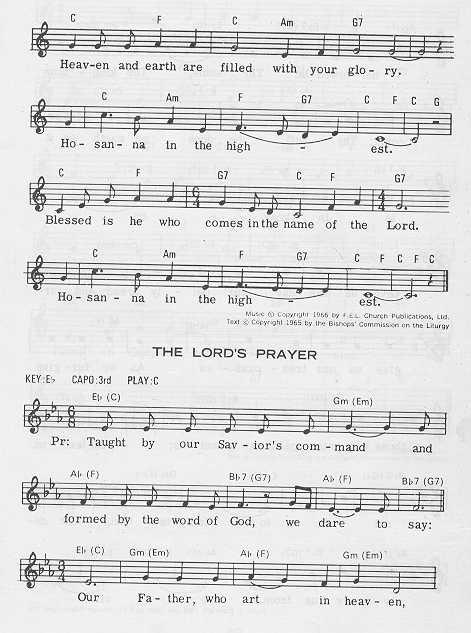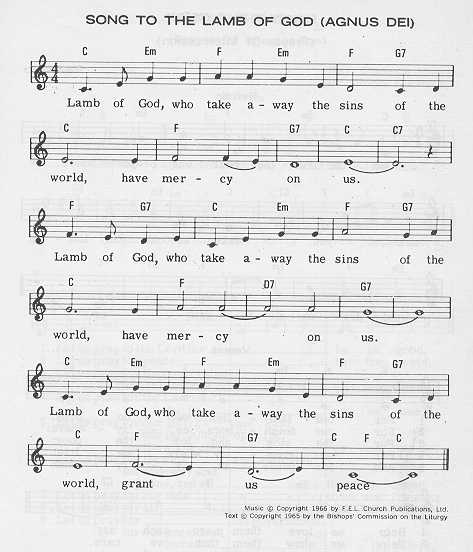


Sacred Music
The two main forms of sacred Renaissance music are the motet and the mass. They are alike in style but a mass is a longer composition. The Renaissance motet is a polyphonic choral work set to a sacred Latin text other than the ordinary of the mass. The Renaissance mass is a polyphonic choral composition made up of five sections: Kyrie, Gloria, Credo, Sanctus, and Agnus Dei.
Here are the music scores for some of the sacred music that is used in churches around the world today. It is sung in English but it can be sung in other languages too.



Secular Music
During the Renaissance, secular vocal music became increasingly popular.
Throughout Europe, music was set to poems in various languages, including
Italian, French, Spanish, German, Dutch, and English. The development of
music printing helped spread secular music, and thousands of song collections
became available. Music was an important leisure activity; every educated
person was expected to play an instrument and read notation.
Though still subordinate to vocal music, instrumental music did become
more important during the Renaissance. Traditionally, instrumentalists
accompanied voices or played music intended for singing. Even in the early
1500s instrumental music was largely adapted from vocal music. Instrumental
groups performed polyphonic vocal pieces, which were often published with
the indication to be sung or played. Soloists used the harpsichord,
organ or lute to play simple arrangements of vocal works. After this short
period of time, much of this instrumenatl music was intended for dancing,
a popular Renaissance entertainment. Every cultivated person was expected
to be skilled in dance, which was taught by professional dancing masters.
Court dances were often performed in pairs.
I would really love to know more about music during the Renaissance. Do e-mail to me if you have any information. Thank u!!!
Middle Ages - Baroque - Classical - Romantic - Twentieth Century - Composers-
Homepage